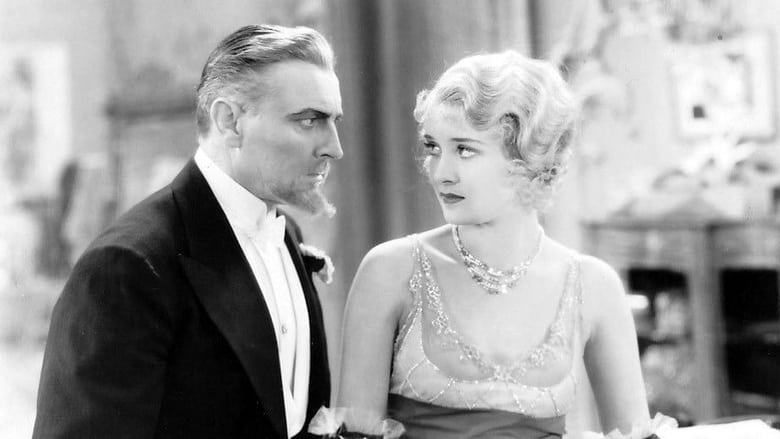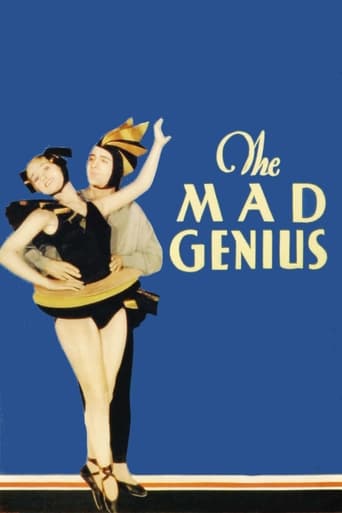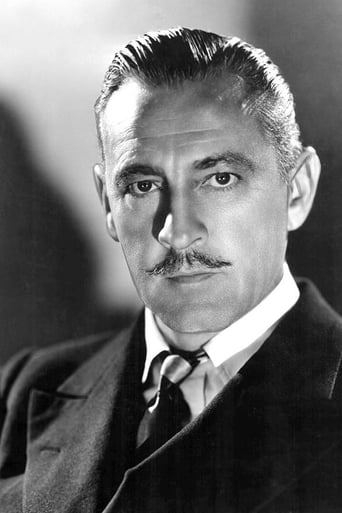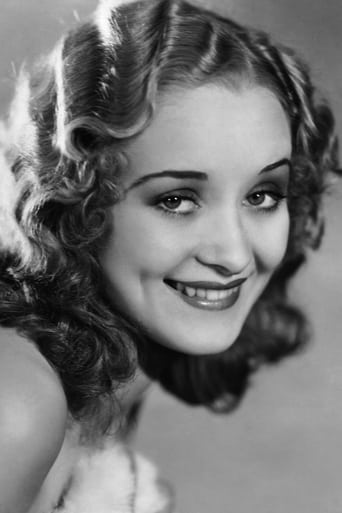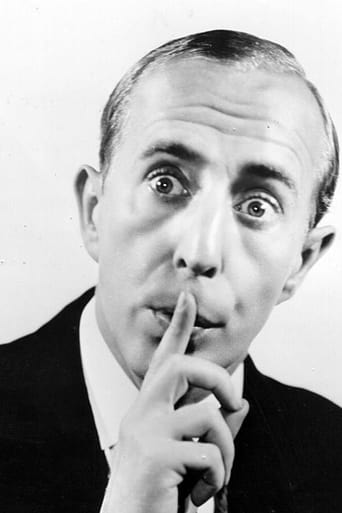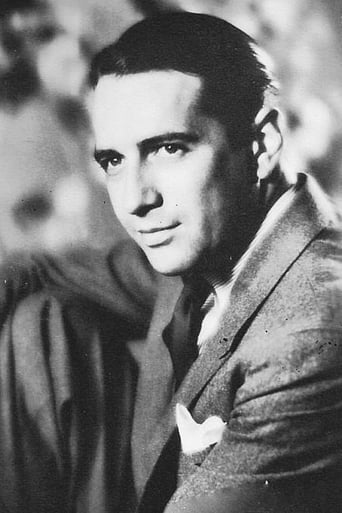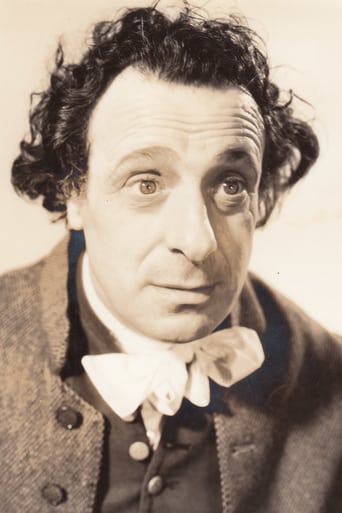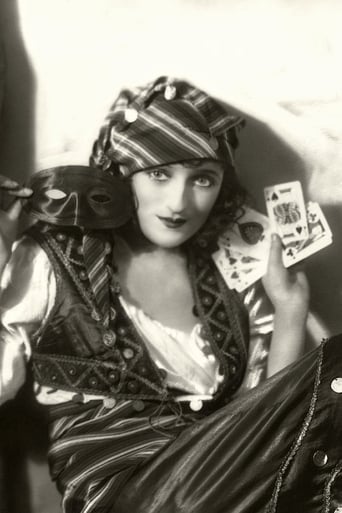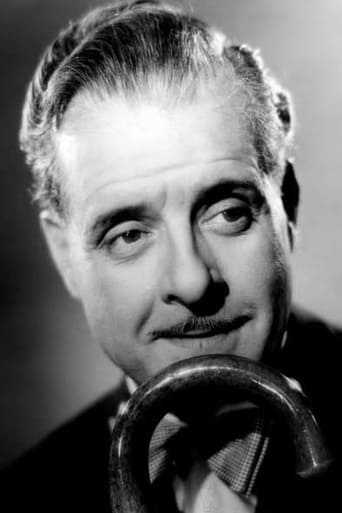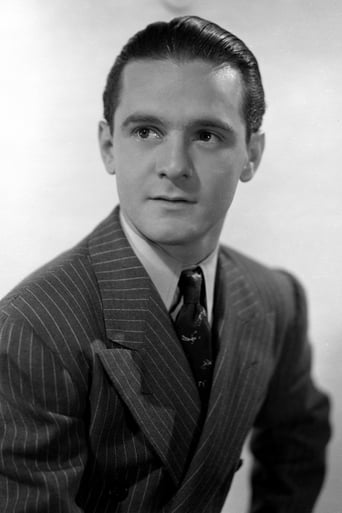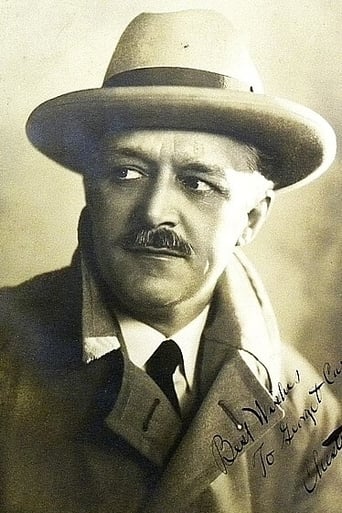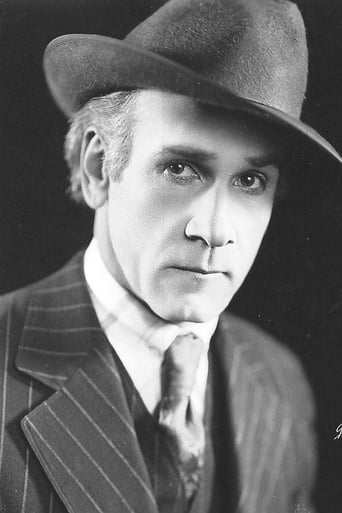A crippled puppeteer rescues an abused young boy and turns the boy into a great ballet dancer. Complications ensue when, as a young man, the dancer falls in love with a young woman the puppeteer is also in love with.
Similar titles
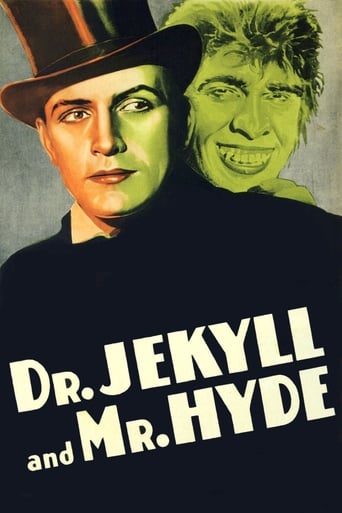
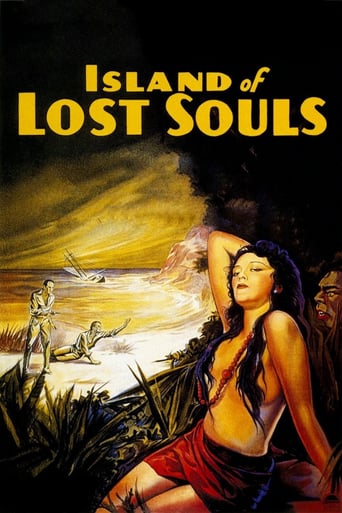
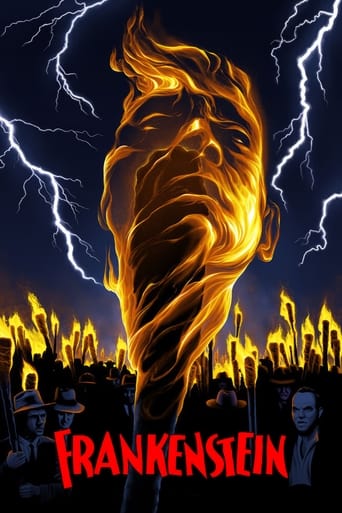
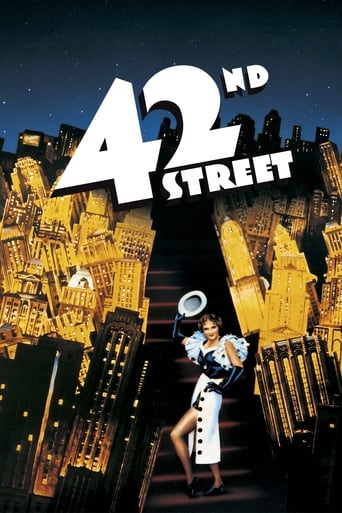
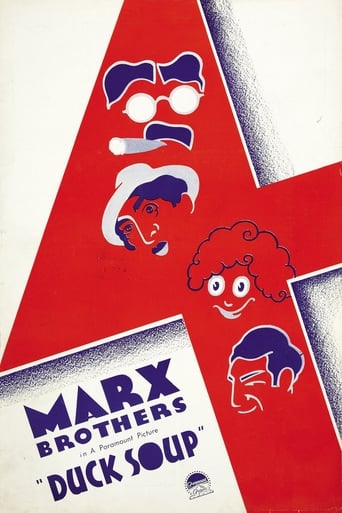
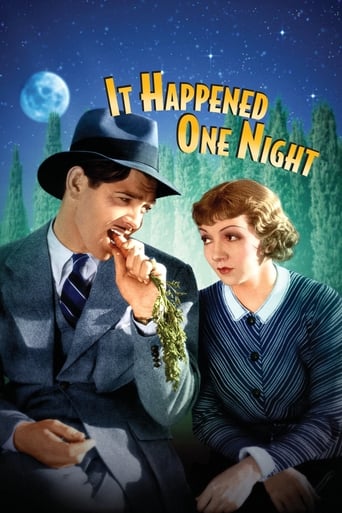
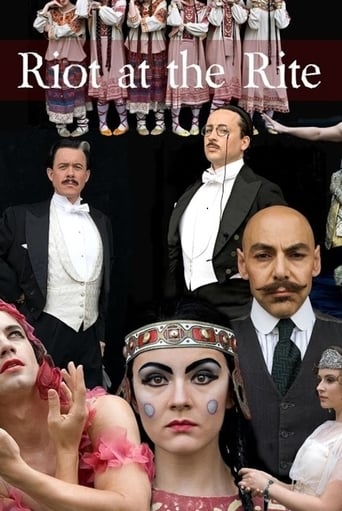
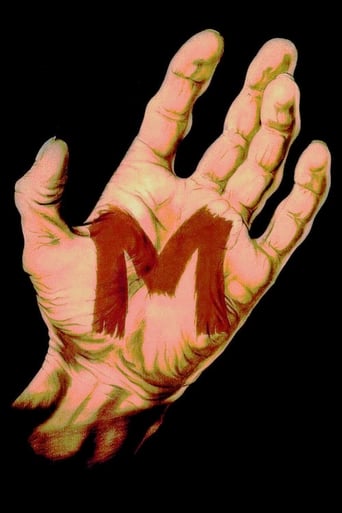
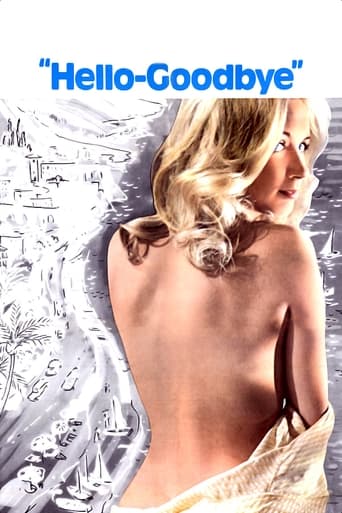
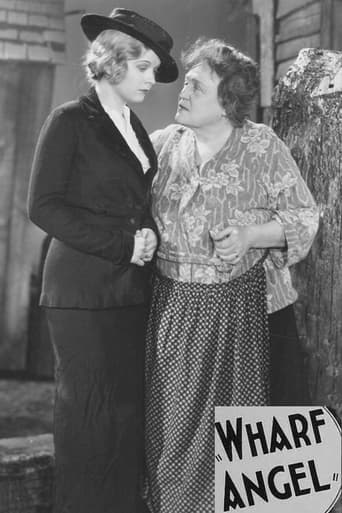
Reviews
Very well executed
the audience applauded
Excellent but underrated film
A terrific literary drama and character piece that shows how the process of creating art can be seen differently by those doing it and those looking at it from the outside.
The Mad Genius (1931) *** (out of 4) Vladimar Ivan Tsarakov (John Barrymore) dreamed of becoming a world famous dancer but a club foot prevented that from happening. One day he notices a young boy being abused so he takes the kid as his own with the plan of turning him into a great star. As an adult, Fedor (Donald Cook) begins to rise to stardom as Vladimar's obsession grows stronger and more deranged.Obviously this here was meant as a version of SVENGALI, which was released earlier in the same year as this picture. In all honesty, I've always thought that film was somewhat overrated but it was saved thanks to the great performance by Barrymore. It took me a long time to track down a copy of THE MAD GENIUS and I must admit that I felt the same about this film as I did about SVENGALI.THE MAD GENIUS isn't a bad movie but at the same time, outside of the performances, there's really nothing overly special about the film and I might even argue that it's pretty darn boring at times. I really didn't think the usually great Michael Curtiz brought any style or substance to the material. I was a little surprised that the screenplay spends so much time with characters just sitting around talking. A lot of the more horror-like elements are drained of any sort of suspense or drama.As I said, the reason the film remains watchable is due to the performances with Barrymore once again leading the way. I really thought he was great here in a rather restraint role. I mean, we're used to the theatrical Barrymore really going wild but that wasn't the case here. He was brilliant at using his eyes to tell and show us what madness was beneath this character. I also thought Marian Marsh was good in her role of the love interest and Cook is also good, if a bit bland, in his role. Charles Butterworth nearly steals the picture with his comic timing in the role as Karimsky.As I said, there are quite a few flaws to be found in THE MAD GENIUS but the cast and performances are just so good that you can't help but stay with the picture.
Although not quite as good as Svengali, this follow-up with John Barrymore and Marian Marsh from that film isn't too shabby. Barrymore stars as puppeteer with a bum leg who fancies himself a ballet impresario, discovering a kid with athletic spirit he feels is perfect for what he envisions as the vessel for all his creative energies. Donald Cook is the grown-up Fedor, now an undeniable ballet talent thanks to Barrymore's Vladimir Tsarakov, on marquees heading extravagant stage presentations. Along with loyal and put-upon assistant, Karimsky (Charles Butterworth), Vladimir has shaped and molded the ballet superstar he always wanted to be but his crippled leg wouldn't let him in Fedor. All that could be jeopardized by a female dancer, Nana (Marsh, just a doll), who Vladimir considers a bad influence, with him purposely on the manipulative attack, using whatever psychological tactics his devious, jealous mind could muster. Honestly I could barely recognize Karloff as the abusive peasant father chasing after Fedor when he was a kid, with Vladimir hiding him from harm. The sets, especially the stage houses and operas, are impressive, but Barrymore bugging his eyes, liquoring up and womanizing when able, is once again incredible...a charismatic powerhouse who plays this monster seeing himself a god having created a perfect specimen he feels will be corrupted by Nana to the hilt. Barrymore's alcoholism might have robbed him ultimately from a lucrative career, but this and Svengali offer us rich examples of colorful human beasts, doing whatever it takes to control or destroy those that possibly disrupt his plans. Michael Curtiz's direction may not necessarily command the same attention as future Warner Bros horror pictures like Doctor X or Mysteries of the Wax Museum, but he still knows how to frame faces and delve his cast into the macabre. This film includes a drug addict who trains the performers and is shaken when Vladimir demands he remove Nana from a starring role...precode Hollywood was once quite daring with these kinds of characters. The way Vladimir torments Nana and Fedor's suffering after Vladimir blacklists make up some real dramatic weight in this film. A gem worth seeking out.
In "The Mad Genius" John Barrymore delivers one of his most enjoyable screen performances, playing a club-footed, alcoholic, womanizing Russian puppeteer who takes an abused youth under his wing and molds him into a great star with the Ballet Russe, an accomplishment he could never attain himself due to his deformity. Some may consider his performance hammy, but at least it's Grade A.The film opens expressionistically somewhere in "Central Europe" on a rain-drenched night with Barrymore and his dim-witted sidekick (the deadpan Charles Butterworth) rehearsing a traveling puppet show when a barefoot youth (Frankie Darro), fleeing a beating from his insanely sadistic father (Boris Karloff), stumbles into their tent. Barrymore and Butterworth hide him and leave town in a horse-drawn wagon shot at a tilted angle as it creaks along a muddy road.Zip to Berlin several years later. The youth is now a young man (Donald Cook) who is in love with a fellow dancer (Marian Marsh). Barrymore, still the puppeteer but of humans now, wants no one interfering with his controlling relationship and maneuvers Marsh out of the company while elevating a lesser dancer to her position. Meanwhile, Barrymore's dance director (Luis Alberni) is slowly going mad from a cocaine addiction enabled by his employer. The two are locked together, feeding on each other's weaknesses, paralleling the central relationship between teacher-mentor and star-protégé. Barrymore needs Alberni's skills as a dance master; Alberni can't function without the drugs Barrymore provides.The camera often shoots from low angles, with ceilings visible. Lots of chiaroscuro. Pre-Code subject matter includes extramarital cohabitation, prostitution, drug addiction, and (for the time) grisly violence. Suggestive dialogue abounds.Barrymore feasts on the role. Luis Alberni plays the frenzied addict to the hilt. Marian Marsh and Donald Cook are sometimes mechanical and artificial but not to the extent that they undermine their roles and both have strong moments. Carmel Myers is excellent in a brief drunken scene with Barrymore.Donald Cook looks so much like the Warners contract actress Kay Francis that they should have been cast in a movie together as siblings. Just sayin'.
This movie was so obviously an attempt by Warners to cash in on John Barrymore's earlier "Svengali", they even reunited a lot of the cast - Barrymore, Marian Marsh, Carmel Myers and Luis Alberni. This movie was to ballet what "Svengali" was to opera, purportedly based on the relationship between Diaghilev and Nijinsky, although in reality Nijinsky had already created a stir in the ballet world before he met Diaghilev.John Barrymore gets a chance to play another "warped" genius and his performance dominates the film, without him it would be just a forgettable romance played out against a ballet background. This time he is a crippled puppeteer who, as a child, was rejected by his ballerina mother because of his clubfoot. Since then he has crushed his dreams and now runs a traveling marionette circus. When he gives shelter to a village boy, Fedor, (Frankie Darro) who is hiding from his cruel father (Boris Karloff), Tsarakov (Barrymore) vows "I will make him the greatest dancer of all time"!!! and within 15 years, Fedor (now played by Donald Cook) has taken the ballet world by storm. You definitely don't see Cook perform many intricate steps but he handles the dramatic part of the story okay. Tsarakov is now manager of a "Ballet Russe" (shades of Diaghilev) but behind his kindly uncle demeanor is an evil tyrant who manipulates people through their own weaknesses.Fedor is in love with the beautiful Nana (Marsh) but that does not fit in with Tsarakov's plans and he plots to have Nana expelled from the company. He forges a letter and forces drug addicted choreographer Bankieff (Luis Alberni) to sign - or he will withhold the drugs that he knows Bankieff craves. His plan backfires however and Fedor and Nana run away together, Fedor getting a job in a seedy cafe (a rare chance to hear Cole Porter's "You've Got That Thing") and sinking into a depression when he realises that ballet is in his blood. There is an interesting plot development when Fedor starts to exhibit the same characterizations as Tsarakov, in his voice and speech but apart from a couple of characters remarking on it, it doesn't go anywhere. It all ends in a completely melodramatic way that would have pleased Barrymore no end.In a 1985 Films in Review article, Marian Marsh recalled the happy memories she had of working with Barrymore. He was enjoying a period of great calm, he was happily married to Dolores Costello, he wasn't drinking (much) and his wife and little daughter "Dee Dee" often visited him on the set. Miss Marsh said that far from being "the Great Actor" he was very kind to her and helped her in her craft.
Top Streaming Movies











